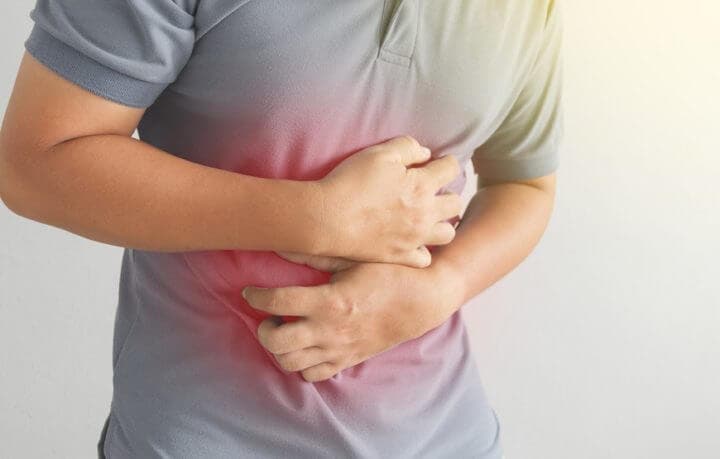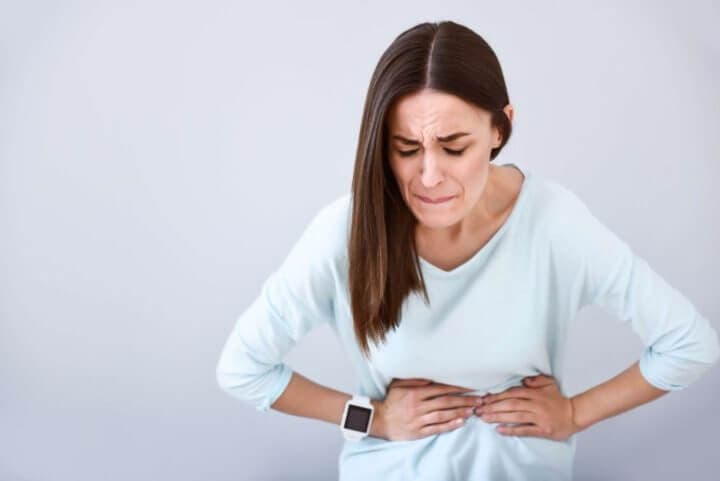Ulcerative colitis is a condition that is characterized by inflammation of the colon and rectum . Ulceration of the inner wall of the colon causes symptoms such as bloody diarrhea and often abdominal pain.
This disease of unknown cause can cause irreversible damage to the colon, such as a perforation in the intestine or severe bleeding due to sores that line the ileum and rectum.
Despite the symptoms described, this disease can be kept low profile with properly prescribed drug treatment. These treatments generally reduce colon inflammation, diarrhea, and the development of complications from the disease.
Discover 12 things you should know to treat ulcerative colitis .

12 things you should know to treat ulcerative colitis
In the treatment for ulcerative colitis, medications or surgery are often used. However, your doctor may suggest other options to treat this condition.
1. The stage of the disease will determine the treatment
The treatment to follow for ulcerative colitis will depend on its condition, whether it is active or controlled. There are several categories of medications that are effective in alleviating this condition, the following are often prescribed:
- 5-aminosalicylic acid (5-ASA) medications, such as mesalamine
- Steroid medications, such as prednisone, prednisolone, and budesonide
- Immunosuppressants, such as 6-mercaptopurine (6-MP) and azathioprine
- Biologics, such as infliximab (Remicade) and adalimumab (Humira)
- Monoclonal antibodies, such as vedolizumab (Entyvio)
Your doctor will prescribe the treatment that best suits your case. Keep in mind that some people may work with medications that you may not, so it may take some time to find the right treatment for you.

2. It has two objectives
This pathology is not curable, so you will experience periods known as flare-ups where symptoms are present. However, these are preceded by lapses of remissions that, fortunately, can last for months or years.
Treatment for ulcerative colitis seeks to achieve two effects; achieve remission in the patient and prevent symptoms from appearing. Hence, the importance of strictly complying with the medication prescribed by your doctor.

3. Topical treatments may be sufficient if mild
If the symptoms are mild, it will be enough to prescribe drugs such as topical 5-ASA or corticosteroids, commonly used against mild diarrhea, rectal pain or bleeding.
Remember that only by taking medications can you control your symptoms and remain in long-term remission.

4. Many people with mild ulcerative colitis go into remission.
90% of people with mild ulcerative colitis go into remission and 70% remain in this state, as long as they take the medications prescribed by their doctor in the prescribed doses, for example, 5-ASA.

5. Ulcerative colitis medications cause side effects
Some ulcerative colitis medications have serious side effects. You should analyze the risks and benefits of any treatment.
The most common are the following:
- Headache
- Sickness
- Gases
- Watery diarrhea
- Fever
- Eruption
On the other hand, steroids for ulcerative colitis have these side effects :
- Increased appetite and weight gain
- Acne
- Fluid build-up
- Humor changes
- Trouble sleeping
Likewise, biological medications can make it difficult for your body to fight infections, so it is advisable to closely monitor the symptoms while you are taking these medications, and immediately consult your doctor if they are unbearable.

6. You need more than one treatment to stay in remission
Often you are prescribed more than one medication to deal with ulcerative colitis . To control these symptoms, your doctor may prescribe, for example, biological and immunosuppressive medications.
Supplementing the prescription with another drug would increase its effectiveness. However, keep in mind that side effects are sure to increase, so your doctor will have to balance the need to control symptoms with contraindications.

7. Treatment of ulcerative colitis is long-term
Despite going into partial or complete remission, it is necessary to continue with the treatment even at lower doses. To keep the disease low and under control in the long term, you can't put medications aside.

8. Good bacteria can help you feel better
Probiotics are beneficial bacteria that help kill bad germs, just as antibiotics are another treatment for ulcerative colitis. Adding them to your treatment could help you stay in a remission state. Remember that high numbers of harmful bacteria in the gut are linked to ulcerative colitis.

9. You don't need to change your diet drastically
Due to the lack of medical evidence, depriving yourself of certain foods is not advised to improve your condition. However, eating healthy will always do your overall health good.
Keep in mind that eating healthy does not mean eliminating from your diet foods that your body needs for its proper functioning, this will not lead to a state of remission. Consult with your doctor or dietitian before making abrupt changes to your diet.

10. Surgery is a possibility
If you have acute ulcerative colitis, you may not feel any relief from medicine alone.
Between a quarter and a third of patients with this disease, they achieve significant relief only when they undergo an intervention to remove the colon.

11. In case of severe symptoms you should go to the hospital
If the diarrhea is severe, the bleeding is acute and, in addition, it does not respond to treatment, you should go immediately to a hospital.
You may be admitted for a short period of time. Typically, you are given fluids to prevent dehydration, as well as medications to relieve symptoms.

12. You can live well with ulcerative colitis
Ulcerative colitis is not a life threatening disease, and once you find the treatment that works for you, the frequency of flare-ups will decrease and remissions will last longer.
Today, due to new and better medical treatments, most people with ulcerative colitis can keep their disease in remission and lead normal, active lives.

conclusion
Ulcerative colitis is an intestinal disease of unknown cause , which causes inflammation and ulcers in the digestive tract, so it is vital, in case of suffering from it, to undergo medical treatment adjusted to the type and level of the disease.
This treatment, despite not curing the condition, can improve the effects over time.
Reference
- Sethi, S. 12 Things to Know About Ulcerative Colitis Treatment. For Healthline. [Revised February 2020]